#after msc microbiology
Text
PG Diploma in Epigenetics and Molecular Diagnostics
Varam Reprogenesis is a premier institute that offers a PG diploma in Epigenetics and Molecular Diagnostics.
Epigenetics has emerged as a cutting-edge field in medical science, with its potential to offer personalized treatments for various diseases and disorders.
The PG diploma in Epigenetics and Molecular Diagnostics by Varam Reprogenesis aims to provide in-depth knowledge and practical training in this exciting field.
The course has been designed by a team of experts and is regularly updated to stay in sync with the latest developments in the field.
Course Outline
The course is spread over 12 months and is divided into 3 modules.
The first module focuses on the basics of epigenetics, including the principles and processes involved.
The second module delves deeper into the various techniques and tools used in epigenetics research.
The final semester emphasizes hands-on training and practical applications of epigenetics in clinical settings.

Course Objectives
The primary objective of this course is to provide a strong foundation in the field of epigenetics and its applications in clinical settings.
The course aims to equip students with the necessary knowledge and skills to conduct epigenetics research and implement it in patient care.
Another objective is to familiarize students with the latest tools and techniques used in epigenetics and molecular research, such as next-generation sequencing and bioinformatics.
The course also aims to train students to critically analyze and interpret epigenetics data and apply it in medical decision-making.
Tools and Techniques
The course covers a wide range of tools and techniques used in epigenetics research, such as DNA methylation analysis, chromatin immunoprecipitation, and gene expression profiling.
Students will also learn about advanced techniques like CRISPR-Cas9 gene editing and single-cell epigenomics.
The course also includes training in bioinformatics tools and software for data analysis and interpretation.
Students will have access to state-of-the-art equipment and technology during the hands-on training sessions.
Hands-on Training
The course includes practical sessions where students will work on real-life case studies and experiments under the guidance of expert instructors.
These training sessions will help students gain hands-on experience in using various tools and techniques and analyzing data.
The practical sessions will also help students develop critical thinking and problem-solving skills, which are essential for a career in epigenetics.
Expert Instructors
The course is taught by a team of experienced and qualified instructors who are experts in the field of epigenetics.
The instructors have years of experience in both research and clinical settings, providing students with valuable insights and practical knowledge.
The instructors also regularly update the course curriculum to stay aligned with the latest advancements in epigenetics research.
youtube
Practical Applications
The course focuses on practical applications of epigenetics in clinical settings, such as using epigenetic markers for disease diagnosis, prognosis, and treatment.
Students will also learn about the role of epigenetics in personalized medicine and its potential to revolutionize patient care.
The course also covers the ethical, legal, and social implications of epigenetics research and its impact on society.
Certification and Assessment
Upon successful completion of the course, students will receive a recognized and accredited PG diploma in Epigenetics and Molecular Diagnostics from Varam Reprogenesis.
The assessment will include both theoretical and practical components, ensuring that students have a comprehensive understanding of the subject.
Students will also be required to complete a research project and a final presentation at the end of the course, showcasing their knowledge and skills.
The PG diploma in Epigenetics and Molecular Diagnostics offered by Varam Reprogenesis is an excellent opportunity for students to delve into the exciting field of epigenetics. With its comprehensive curriculum, hands-on training, expert instructors, and practical applications, this course offers a well-rounded learning experience. Graduates of this program will be well-equipped to make significant contributions to the field of epigenetics, taking it to new heights in the medical world.
#icsi training#pg diploma in clinical embryology#ivf training#msc in life sciences#which is the best course after bhms#after bsc nursing course#after msc microbiology#clinical embryology courses#which is the best course after bds#Madurai Kamaraj University Diploma Courses#Youtube
1 note
·
View note
Note
Hi! I'm a 3rd year undergrad studying Microbiology and Chemistry (currently doing vaccine research on a few bacterial pathogens!). I've been following you for a while now and I was just wondering what your science journey has looked like! I'm looking into grad school at the moment (hoping to get a PhD someday) and I was just curious what your path was like. How was your undergrad experience? Did you do research? Have you changed your career/interests in biology at all? Did you go straight from undergrad to grad school? Do you experience imposter syndrome (and how do you deal with it)? Etc etc etc. I know some of these are quite personal so please don't feel pressured to answer! Just curious about other people's paths to becoming successful scientists.
I started my undergrad in general science, thinking I would do chemistry or biochemistry. Turns out I was way more into genetics and evolution than squiggle molecules and chunky carbon so I changed schools to specialize in ecology and evolution. I did a few research projects as an undergrad and worked as a summer field hand. The lab I worked for lured me into ecology because mountains. I fell in love with field work and applied for grad school in an aquatic ecology lab. How I decided on aquatic ecology is another funny story.
Originally I wanted a PhD but very quickly realized I had zero desire to work in academia and an MSc made way more sense for my career goals. I defended last year and got a short term government position, followed by being hired in the lab I did my degree in.
I did start grad school immediatly after my undergrad but if I could go back I would have taken a year to work and rest instead (but Covid had a lot to do with that).
I've changed my career goals a lot and am currently considering pursuing a scientific communications career after this research position.
I deal with imposter syndrome everyday but I've got lots a therapy tools to deal with it now.
This is a very short answer to a long question so feel free to message me if you want to chat more!
23 notes
·
View notes
Text



Meanwhile, CEO Overlord Tycoon Oligarch Big Boss Boo Boo Armand continued juggling important business matters and receiving guests, clients, partners and job applicants in his office on the top floor of Amasim HQ every day. [I'll leave it up to your own imagination which one Dina must be].



Armand: Ms. Jillian Smith, Ms. Jillian Smith... Ah yes, here are your papers... I gotta say, I'm very impressed by your qualifications.
Jillian: Thank you, sir.
Armand: Can you tell me a little bit about why you want to work as a receptionist for our company?
Jillian: Well, yes, so as I mentioned in my cover letter, I started developing a passion for picking up the phone from a very young age. Then as I grew and gained experience, I've become thoroughly proficient in washing coffee cups in the sink, paying close attention to the safety of their thin, fragile handles. Then I got briefly derailed as I was completing my MSc in microbiology, but after that I was thankfully able to return to the catering industry and developed fundamental soft skills such as how to fit the 25 minute errand task I've been assigned with by my managers last minute into my 15 minute lunch break. I believe I could put these skills to good use at Amasim HQ and enrich the profile of the company with my professionalism in such important causes for humanity.

Armand: Congratulations Ms. Smith, you're hired! You can start today afternoon!
#i know it hurt me to write too im so sorry#armand#jillian#dina#ultimatehood#belladonna cove#debateau#round 2
10 notes
·
View notes
Text
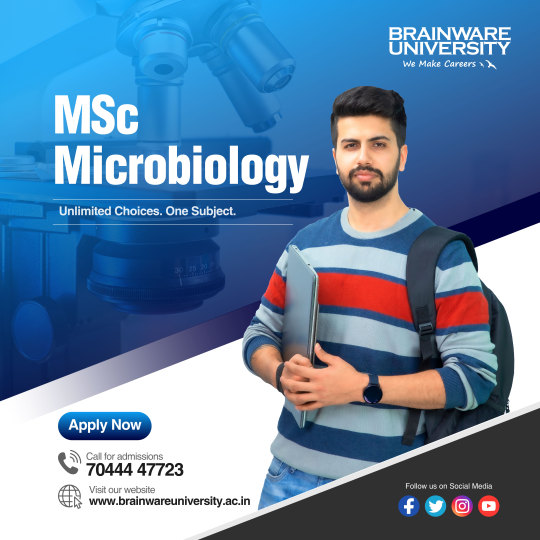
Apply Now -
A MSc degree in Microbiology is a 2-year postgraduation course involving an advanced study in bioenergetics and molecular enzymology, molecular immunology, bio instrumentation, microbial physiology, food and dairy microbiology, microbial diversities and extremophiles etc.
Eminent research scientists provide lab guidance to the students. Frequent laboratory visits, field works, independent research provide the optimal learning experience. Coupled with the rigorous pre-placement training from day one, students become industry-ready by the programme end. The employment scopes after M Sc Microbiology are immense and rewarding.
0 notes
Text
From Georgian Bay and Lake Huron in Ontario to the River Almond
Our Programme Manager, Fiona caught up with #MOT4Rivers PhD Student Bridget Rusk to learn a bit more about her project, including shadowing her in the Microbiology Lab and what motivates Bridget in science. Bridget's PhD research is part of the wider NERC Funded freshwater quality programme, which MOT4Rivers is 1 of 5 projects funded under. Bridget's PhD is co-funded by Scotland's International Environment Centre & Scottish Water.
Join us for an conversation with Bridget (Pictured here with her trusty companion, Dale) where she talks all about science, wet wipes and faecal coliforms, and more!

You've been at Stirling for a little over a year now and the sampling campaign as part of the MOT4Rivers project kicked off in September 2023 so we thought this would be a great time to get to know you and your research.
Q: What was your previous education in and where?
Prior to joining University of Stirling for my doctoral research, I completed my Undergraduate programme, BSc (Hons) in Physical Geography at Queen’s University, Kingston, ON, Canada and my Taught Postgraduate studies MSc in Integrated Water Resource Management at McGill University, Montreal, QC, Canada.
Q: You started your PhD in October 2022, what's the doctoral research all about?
I am trying to improve monitoring of sewage pollution in rivers. Sewage pollutes water, spreads illness/disease, and can be harmful to people and wildlife. Across the UK, there is increased awareness and concern about the amount of raw sewage being discharged into waterways. However, given the time, money, and resources required for monitoring discharges, we only have a fraction of understanding about the frequency and impacts of these events.
I am working with the University of Stirling and Scottish Water to advance water quality management with high-resolution monitoring and real-time delivery of data. I am testing the use of optical sensors to constantly monitor microbial pollution. We are trying to find out how well they work, and how the data is impacted by various factors like the sensor’s placement within the river, what the surrounding environment is like, how far downstream it is located from the discharge location, and so on. The results of this research could help improve current understanding of spatial and temporal microbial water quality dynamics in rivers. The end goal of this project is to contribute to better forecasting to protect human health, and better-informed water quality management/interventions to improve surface water conditions. It would cost billions to completely overhaul the wastewater system network, so better monitoring could help target and optimize interventions within budgetary constraints.
Q: What is the role of your doctoral research in the MOT4Rivers project?
Within the MOT4Rivers project, my research is looking at the contributions of the wastewater network into the River Almond catchment; while the larger team is covering all sorts of pollutants and emerging water quality concerns, I am more specifically focusing on the spatial and temporal occurrence of sewage in the catchment.
To do this, I am taking traditional lab-based measurements of faecal coliforms (mainly E.coli) as well as optical sensor readings of samples collected across the River Almond catchment.

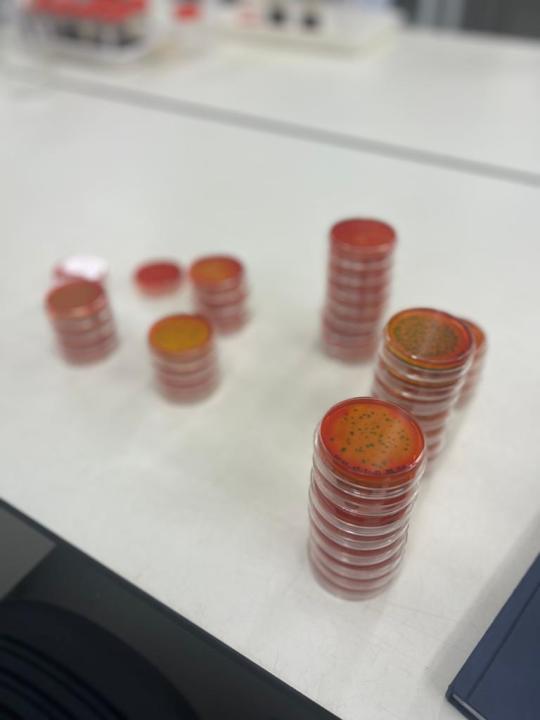
Q: Have you made any interesting discoveries in your doctoral research yet?
It is still early days! In working with technology, I have made some personal discoveries about how to dabble in electrical engineering, but actual data results are still to come!
From a catchment-perspective, I would advise that if you are participating in a litter-pick or river cleanup event, you should definitely wash your hands after…
Q: Do you have a favourite water body and if so, where and what?
That’s a hard one to answer, coming from a country with so much water!!! From top of mind, I would have to say it’s a bit of a tie between Georgian Bay and Lake Huron in Ontario. I spent a significant portion of my childhood along the Bruce Peninsula, and it’s a special place, with soft sandy beaches and beautiful sunsets on the Lake Huron side to the west, and then really cool limestone cliffs and caves with glacial blue waters on the Georgian Bay side to the east.
Q: What got you into water quality science?
I come from an interdisciplinary background, working in water quality and contaminated sites in Canada. I initially got into research doing summer internships during my undergrad. My research internships varied from working as the GIS technician for a children’s cancer research team, to evaluating a potential supplemental drinking water source for the city of Iqaluit, NU.
I really enjoyed the crossover to where research was applied to current events and issues that people cared about. I went on to work in the environmental management of contaminated sites, predominantly focusing on abandoned mine sites in Northern Canada. I really enjoyed the complexity of the work, where you must consider everything from how you’ll control remediation activities to not create a new source of pollution in the area you are trying to clean up, to what vegetation is appropriate to re-establish for the wildlife post-remediation.
I knew that I wanted to build my career as a technical expert, and found myself most drawn to people’s intrinsic emotional, personal, and cultural connections to water. As they say, water is life, and I decided to pursue a PhD which addressed water pollution in some way.
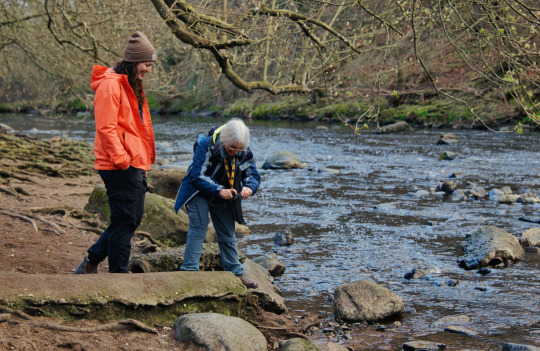

Q: What’s your favourite thing about science?
I think it is really cool that we as humans have systematically established a way to ask a question, figure out a way to get an answer, and find out something new about the world that we didn’t know before.
Q: What do you enjoy about lab work?
I really enjoy the analytical work, where you get to be hands-on in figuring out what is in the water. I enjoy the independence of it, the diversity of the workday, and getting to apply my knowledge to troubleshoot problems.
Having a dynamic workday away from the computer screen is also really nice. However, given the infamous Scottish weather, I do find there are some days where I am grateful that my lab work is indoors…
Q: If you could encourage a younger scientist, what advice would you give them?
Some of my best learning and personal growth has come via failure. It’s part of the process. Embrace it.
Also – you are not your PhD. Personally, I found that gaining work experience before pursuing my PhD has helped me approach my studies with better project management skills and work-life balance. If you can get the opportunity, working in multidisciplinary teams (i.e. working with engineers, biologists, politicians and trades people) will help give you better context of the big picture that your research sits within.
Q: If you could change public perception on one thing in the water industry, what would it be?
No matter what the packaging says, wipes are not flushable! Throw those bad boys in the bin please.
[We totally agree Bridget, for more information on how damaging wet wipes that go down the loo are to our rivers and ecosystems, visit Scottish Water's Nature Calls campaign pages.]
More broadly speaking, I think people often forget that everything that goes down the drain will eventually end up in the river.

#_large#pinned#research#hydronationchair#netzero#scottishwater#phd#waterquality#wastewatertreatment#wastewater#riveralmond#river
0 notes
Text
Amity University: Best M.Sc Microbiology College In Chandigarh
If you are looking forward to exploring the application of biological components, studying pathogenic mechanisms, and developing diagnostics treatments, head to the best M.Sc Microbiology colleges in Chandigarh, one of them being Amity University.
The students will be nurtured through rigorous academic and practical learning modules on various aspects of microbiology such as Biostatistics and Computer Applications, Bioenergetics and Molecular Enzymology, Bioinstrumentation, Food and Dairy Microbiology, Recent trends in Virology, Molecular Immunology, Microbial Physiology, Microbial diversity and Extremophiles, Enzyme Technology, Bioprocess Engineering and Technology, Microbial Genetics, Environmental Microbial Technology, Recombinant DNA Technology, Fermentation Technology, Bioinformatics, Microbial Genomics and Proteomics, and Pharmaceutical Microbiology among others.
Skills required for a career after M.Sc Microbiology
Certification star of great use for microbiologists, they can join degree apprenticeships in food technology from the Institute of Food Science and Technology.
There are also prospects to get selected in the microbiology research workforce. There is a six-month internship program to gain valuable laboratory experience for employers such as drug manufacturers.
A microbiologist should have the basic qualities of time management, flexible analytical problem-solving skills, perseverance, and the ability to meet deadlines.
Career options after M.Sc Microbiology
Microbiologist
Medical Writer
Quality Control Manager
Bacteriologist
Mycologist
Virologist
Clinical Microbiologist
Duration:
The duration for one of the best M.Sc. in Microbiology colleges in Punjab, i.e., Amity University is 2 years.
It is crucial to have leadership skills to follow a schedule and meet the objectives. You will encounter new situations while working, while previous knowledge could be challenged to arrive at solutions. Major attention should be shifted toward detail and accuracy.
Source : https://topcollegepunjab.blogspot.com/2023/12/amity-university-best-msc-microbiology.html
#best MSc Microbiology College in Chandigarh#M.Sc Microbiology Colleges in Chandigarh#M.Sc. in Microbiology colleges in Punjab
0 notes
Text
Msc Microbiology Colleges in Bangalore

In the bustling city of Bangalore, where academic excellence meets technological innovation, the pursuit of a postgraduate degree in Microbiology takes on a whole new dimension. This blog explores the top M.Sc. Microbiology colleges in Bangalore are shedding light on the institutes that are shaping the future of microbiologists.
Section 1: The Microbiology Landscape in Bangalore
Discover why Bangalore is a hotspot for Microbiology studies. Explore the city's dynamic research environment and how it contributes to the field.
Section 2: Why Bangalore for M.Sc. Microbiology?
Uncover the factors that make Bangalore a top choice for Microbiology enthusiasts. From renowned institutions to research opportunities, Bangalore has it all.
Section 3: M.Sc. Microbiology Program Details
Get insights into the M.Sc. Microbiology programs offered by Bangalore colleges. Learn about the curriculum, faculty, and specializations available.
Section 4: Top M.Sc. Microbiology Colleges in Bangalore
We highlight the leading colleges offering M.Sc. Microbiology in Bangalore. From state-of-the-art facilities to expert faculty, these institutions provide a world-class education.
Section 5: Alumni Success Stories
Read real-life stories of M.Sc. Microbiology alums who launched successful careers after studying in Bangalore. Their experiences serve as testaments to the quality of education in the city.
Conclusion:
Join IADC, one of the top M.Sc Microbiology colleges in Bangalore, and embark on a journey toward a successful and fulfilling career in the field of microbiology. Your microbiology adventure begins here.
#top M.Sc Microbiology colleges in Bangalore#Why Bangalore for M.Sc. Microbiology#education#business#iadc#M.Sc. Microbiology colleges in Bangalore
0 notes
Text
NEIGRIHMS Recruitment 2023: Scientist (Medical) & Research Assistant Vacancy
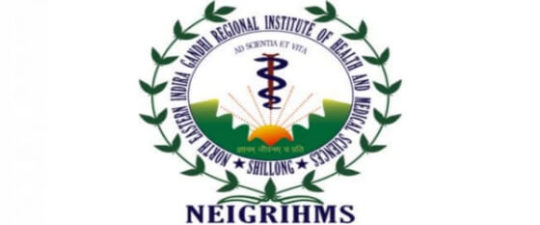
NEIGRIHMS Recruitment 2023: The Department of Microbiology, North Eastern Indira Gandhi Regional Institute of Health & Medical Sciences has released an employment notification for the recruitment of Scientist-C (Medical) and Research Assistant on a contractual basis. The last date for submission of the application is 18th July 2023.
1. Post Name:- Scientist- C (Medical)
- No of posts:- 1 (One)
- Upper age limit:- 45 years.
- Salary:- Rs.67,000/- plus HRA
- Essential Qualification:-
Post Graduate degree (MD/MS/DNB) with one year of R&D/ teaching experience or Post graduate diploma in medical subjects with two years of R&D/ teaching experience in the required subject from a recognized university
OR
MBBS degree recognized by MCI or equivalent degree from a recognized university with 4 years R&D/ teaching experience in the required subject after MBBS degree.
OR
BDS/B.V.Sc & AH degree recognized by DCl/VCI with 5 years R&D/ teaching experience in the relevant subject after BDS/ B.V.Sc. degree.
- Desirable Qualification:-
(i) MD in the relevant subject from a recognized university for candidates with first-class relevant degrees.
(ii) Additional Post doctoral research/training experience in relevant subjects in recognized institute(s).
(iii) Knowledge of Computer Applications or Business Intelligence tools/Data management.
2. Post Name:- Research Assistant
- No of posts:- 1 (One)
- Upper age limit:- 30 years.
- Salary:- Rs.35,000/- plus HRA
- Essential Qualification:- MSc/MSc MIT in Virology/ Microbiology/ Biotechnology/ Parasitology/ Immunology from recognized universities/institutes.
- Desirable Qualification:-
(i) Preference will be given to the candidate having One-year laboratory experience in Virology/ Microbiology and working experience in Molecular Biology techniques
(ii)Knowledge of computer applications or business intelligence tools/data management.
How to apply for NEIGRIHMS Recruitment 2023: Scientist (Medical) & Research Assistant Vacancy?
Interested candidates may apply by filling up the Application Form attached to this Advertisement along with attested copies of all essential documents relating to educational qualification and experience.
Applications should be submitted to the Department of Microbiology, NEIGRIHMS, Shillong. The last date for submission of applications will be on the 18th of July 2023.
Candidates have to mention the name of the post on the envelope SUPERSCRIBING “Application for the post of ……………..”.
Selection Process
Only shortlisted candidates will be contacted and further updated about the interview date and timing, which will be conducted in the Seminar Room, Department of Microbiology, NEIGRIHMS
Those who wish to apply are advised to go through the below official notification in detail before submitting applications.
Download NEIGRIHMS Official Notification
Read the full article
0 notes
Text
Choosing the Right College for MSc Microbiology in India: Factors to Consider
When it comes to pursuing a Master's degree, selecting the right college is paramount. The field of MSc, along with its interdisciplinary counterpart, bioinformatics, is witnessing tremendous growth and offers promising career prospects.
To help you make an informed decision, let us explore the factors to consider when choosing the ideal best college for MSc Microbiology in India. Additionally, we will highlight one of the best colleges for MSc in India.
Factors to Consider When Choosing a College for MSc
Accreditation and Recognition
Accreditation serves as a crucial factor while evaluating a college's credibility and quality. Opting for an accredited college ensures that the curriculum, faculty, and infrastructure meet the necessary standards. When researching potential colleges, look for institutions that are recognized and accredited by reputable bodies in the field of microbiology.
Curriculum and Specializations
An essential aspect to consider is the curriculum and the availability of specialisations within the MSc Microbiology program. A comprehensive curriculum with a balanced blend of theoretical knowledge and practical training is crucial. Look for colleges that offer specialized courses aligned with your career aspirations.
Faculty and Research Opportunities
The presence of experienced and knowledgeable faculty members is pivotal to a robust learning experience. Look for colleges with renowned professors who have expertise in various domains of microbiology. Furthermore, research opportunities play a significant role in shaping your understanding of the subject and preparing you for a successful career. Consider colleges that actively engage in research projects and have well-equipped laboratories.
Infrastructure and Facilities
The availability of state-of-the-art infrastructure and facilities is vital for a comprehensive learning experience. Well-equipped laboratories, research facilities, and libraries with relevant resources are essential components of a good microbiology program. Seek colleges that invest in providing excellent infrastructure to ensure a conducive learning environment.
Placement and Alumni Network
While pursuing your MSc Microbiology degree, you must also think about your future career prospects. Explore the college's placement record and the network of industry connections it offers. Colleges with collaborations with reputed organizations, internships, and a strong alumni network can significantly enhance your chances of securing a promising job after graduation.
One of the Best Colleges for MSc in India
Shobhit University is a NAAC A Grade Accredited with a 34+ Year Longstanding Legacy and has consistently been recognized as one of the premier institutions for MSc Microbiology in India. With its rigorous curriculum, esteemed faculty, state-of-the-art infrastructure, and emphasis on research, Shobhit University stands out among the top choices for aspiring microbiologists. The university also boasts a robust placement cell, ensuring excellent career opportunities for its students.
Conclusion
Choosing the right college for your MSc Microbiology journey in India is a critical decision to shape your future career. Consider factors such as accreditation, curriculum, faculty, infrastructure, and placement opportunities when evaluating colleges. While various colleges excel in offering quality education, Shobhit University stands out as one of the best colleges for MSc Microbiology in India. It is also one of the best MSC Bioinformatics colleges in India.
Its commitment to academic excellence, research opportunities, and strong industry connections make it an ideal choice for aspirants.
Make sure to conduct thorough research, visit campuses, and interact with faculty and alumni to gain insights and make an informed decision.
Remember, your college choice plays a significant role in laying a strong foundation for your career in microbiology or bioinformatics.
So, take your time, explore your options, and embark on a journey towards a rewarding future in the fascinating world of microbiology!
0 notes
Text
A Career In MSc Biotechnology
Introduction
Biotechnology is a field that applies biological knowledge as well as techniques to develop and improve products, processes, and technologies. It involves the use of living organisms or their parts to create or modify products, ranging from pharmaceuticals and vaccines to crops and biofuels. Biotechnology encompasses various disciplines, including genetic engineering, molecular biology, microbiology, and biochemistry. It has applications in healthcare, agriculture, environmental science, and industrial manufacturing. A significant advance in biotechnology has led to significant breakthroughs in medicine, agriculture productivity, and sustainable solutions. In this article, we will know about career scope and the best college for msc biotechnology.
Reasons To Do Master's degree in Biotechnology
Career Advancement:
Biotechnology is a rapidly evolving and also highly competitive field. Therefore having an MSc degree can enhance your career prospects and make you more competitive in the job market. So it demonstrates your commitment to the field, your ability to handle complex scientific projects, and your proficiency in utilizing cutting-edge technologies.
Research Opportunities:
An MSc program in Biotechnology often includes a research component, additionally which allows you to gain hands-on experience in conducting experiments, analysing data, and drawing conclusions. This research experience can be also valuable if you plan to pursue a career in research and development, academia, or even entrepreneurship in the biotechnology industry.
Industry Relevance:
Biotechnology has significant applications in various industries, including pharmaceuticals, healthcare, agriculture, environmental science, and food production. The industry demands professionals with a strong foundation in biotechnology principles and techniques. Furthermore, an MSc in Biotechnology equips you with the skills and knowledge required to address industry challenges and contribute to technological advancements.
Networking and Collaboration:
Pursuing an MSc in Biotechnology allows you to interact with fellow students, professors, and professionals in the field. Hence this offers networking opportunities, collaborative projects, and exposure to different perspectives. Building a solid professional network during your MSc program can be beneficial for future collaborations and career development.
Undoubtedly, the decision to pursue an MSc in Biotechnology depends on your passion for the field, your career goals, and your interest in scientific research and innovation. Hence It is essential to carefully consider your objectives and evaluate how an MSc degree aligns with your aspirations in the biotechnology industry.
Future after MSc Biotechnology in India
Basically, a master's degree in Biotechnology provides students with career prospects in India and abroad. Altogether there are many job opportunities available for MSc biotechnology graduates around the world. Career options for MSc biotechnology graduates include research, teaching, and even environmental and also safety consulting. Following the completion of their master's degree, students can pursue their Ph.D.
MSc Biotechnology Entrance Exam
Other than the DU entrance exam for MSc Biotechnology, there are numerous options available in universities and colleges across India. Check out the list of MSc entrance exams for Biotechnology you can appear for:
· All India Entrance Exam for MSc Biotechnology
· Birla Institute of Technology and Science: BITSAT
· Delhi University MSc Biotechnology Entrance Exam: DUET
· Jawaharlal Nehru University: JNUEE
· Pondicherry University Entrance Exam for MSc Biotechnology
· Indraprastha University (IPU CET)
· Entrance Exam for MSc Biotechnology at Mumbai University
· GAT-B for Entrance Exam for MSc Biotechnology at Pune University
· ICAR Entrance Exam for MSc Biotechnology
Top Companies for MSc/MS Biotechnology Graduates
After all biotechnology graduates are in demand all over the world. Here are the top companies that offer MSc biotechnology jobs for freshers and also offer jobs for MSc biotechnology freshers abroad:
· Biocon Pvt Ltd.
· Himalaya Spring
· Nectar Life sciences Pvt Ltd.
· Alchemist Pvt Ltd
· Panacea Biotech
· Shantha Biotech,
· Alkem India Pvt Ltd
· New York Lab
· Life cell International
· Reddy’s Laboratories
Conclusion
In conclusion, pursuing an MSc in Biotechnology opens up a wide range of career opportunities in India. This specialized degree equips you with advanced knowledge and skills in areas such as genetic engineering, molecular biology, bioinformatics, and bioprocessing. With the rapid growth of the biotechnology industry in India, there is a high demand for professionals who can contribute to scientific research, technological advancements, and innovative solutions.
Here at Softvision College, We combine technology and educational excellence to make studying easier. Learn what you need to know to meet your career goals and make a positive impact on the world.
0 notes
Text
Unlocking the Potential of MSc Chemistry and Microbiology in Gujarat
Gujarat is home to the best colleges for MSc Chemistry and Microbiology. These programs are designed to provide students with an in-depth understanding of the subject matter, including the latest research and developments. In this article, we'll explore some of the best MSc chemistry and microbiology colleges in Gujarat, as well as the opportunities available to students after graduation.
One of the best colleges for MSc Chemistry in Gujarat is Sardar Patel University in Vallabh Vidyanagar. The university's Department of Chemistry has a strong research and teaching excellence reputation. The program covers a wide range of topics, including organic, inorganic, physical, and analytical chemistry. The university has modern facilities, including well-equipped laboratories and libraries that support learning and research.
Another best MSc Chemistry college in Gujarat is Swarrnim Startup and Innovation University (SSIU) in Gandhinagar. The university's Department of Chemistry offers a comprehensive program that covers all aspects of chemistry, including biochemistry and environmental chemistry. SSIU has experienced and qualified faculty members who provide students with individual attention and mentorship.
For MSc Microbiology, the best college in Gandhinagar is Gujarat University. The university's Department of Microbiology is one of the most prestigious departments in the country. The program covers a wide range of topics, including microbial genetics, immunology, and biotechnology. The university has modern facilities, including well-equipped laboratories and libraries that support learning and research.
Swarrnim Startup and Innovation University is another excellent choice for MSc Microbiology college in Gandhinagar. The university's Department of Microbiology offers a comprehensive program covering all aspects of microbiology, including medical and industrial microbiology. The program is designed to provide students with a strong microbiology foundation while exposing them to the latest research and developments in the field.
After graduation, MSc in Chemistry and Microbiology students have several career options. They can work in research and development, quality control, product development, or technical support in various industries, including pharmaceuticals, biotechnology, food and beverages, and environmental science. Graduates can also pursue further studies, such as a PhD or a higher-education teaching career.
SSIU Gandhinagar provides students several opportunities to enhance their skills and gain practical experience during their studies. The university offers a range of extracurricular activities, including clubs, sports, and cultural events, to help students develop leadership, teamwork, and communication skills. The university also has strong industry partnerships, providing students access to internships, research projects, and career opportunities.
In conclusion, MSc Chemistry and Microbiology are excellent programs for students interested in pursuing a career in science. Gujarat has some of the best colleges for these programs, including Sardar Patel University, Gujarat University, and Swarrnim Startup and Innovation University.
Swarrnim Startup and Innovation University is a great choice for students looking for a supportive learning environment and access to practical experience and career opportunities.
If you're interested in learning more about Swarrnim Startup and Innovation University's MSc Chemistry and Microbiology programs, visit their website or get in touch with their admissions team today.
0 notes
Text

#ivf training#msc in life sciences#pg diploma in clinical embryology#icsi training#clinical embryology courses#youtube#after msc microbiology#which is the best course after bds
1 note
·
View note
Link
MSc Microbiology is a two-year advanced postgraduate course that combines chemistry and biology. MSc Microbiology can be pursued after completing a bachelor’s degree in Botany, Zoology, Chemistry, Physiology, or Microbiology.
0 notes
Text
Microbiology Scope in India
Microbiology Scope in India - Microbiology is the study of microscopic organisms such as bacteria, viruses, and fungi with the help of fundamental studies in biochemistry, physiology, cell biology, and ecology. Microbiologists conduct research, record and present their findings, and oversee laboratory operations. Additionally, they perform tests on samples and laboratory analyses, as well as research on different microorganism cultures and how they interact with the environment.
To become a microbiologist, a candidate needs to establish a solid foundation in science, especially biology and biochemistry. Apart from this, the candidates should also have good knowledge of the Microbiology Scope in India. In recent years, microbiology has become a flourishing field of study, and its applications have expanded in India. Microbiology graduates are sought after in many fields including medicine, pharmacy, food agriculture, environment, and many others.
Microbiologist Scope in India
The application of microbiology has expanded recently in India, and many new career opportunities are emerging, including in pharmacy, food technology, agriculture, and many other industries.
Aurobindo, Cipla, and Pfizer are some of the highest-paying employers in India. The following sections examine the BSc Microbiology, MSc Microbiology, and Medical Microbiology corses that are among the most sought-after programs for higher education in microbiology.
Which are the top colleges for microbiology courses in India?
Some of the best institutes for microbiology courses in India are:
Dolphin College of life Sciences
Madras Christian College, Madras
Chennai Presidency College, Chennai
AIIMS Delhi, Delhi
Manipal University, Manipal
King George’s Medical University, Lucknow
Jawaharlal Institute of Postgraduate Medical Education and Research, Puducherry
Career Prospects and Job Scope for M.Sc Microbiology
There are many areas of chemical and biological research where M.Sc. Can be employed in microbiology. After earning M.Sc. In microbiology, one has opportunities for profitable careers in both the public and commercial sectors. Students can apply in various fields based on their interests and area of specialisation.
What can do after M.Sc in Microbiology? courses in microbiology are one of the frequently asked questions of the applicants. MSc Microbiology job opportunities in India including research, education, chemical, and IT companies, data analysis, quality control, and medical writing. The following list includes job prospects for M.Sc. Microbiology graduate:
Medical Coder
Operations Manager
Research Analyst
Chief Hygienist
Data Analyst
Medical Writer
Microbiologist
Demonstrator
Microbiological Auditor
Clinical Reviewer
Lab Assistant
General career opportunities for microbiologists
Food, pharmacy, agrochemistry, biotechnology, biorefinery, environment, pollution control, and bioremediation are some of the industries where microbiologists can work.
Microbiologists work as environmental and health experts in agriculture to investigate how bacteria affect soil fertility, plant health, pest management, and nutrition.
Work in the medical and healthcare industries is usually related to the detection, prevention, and treatment of diseases caused by microbes.
Microbiologists are employed by universities and colleges as researchers and instructors.
0 notes
Text
Amity University Punjab Among top M.Sc in food science colleges in Chandigarh
Some food enthusiasts are not merely indulged in trying the best meals out there but also have a strong interest in decoding the ingredients and the health benefits of a particular food item, then a degree in Food Science and Technology would be best for you. The Food Science Technology course unfolds the fundamentals of the production of food items. You can learn about the packaging as well as the hygiene of different food products. At Amity University Punjab you get an option to study M.Sc in food science. It is one of the top M.Sc in food science colleges in Chandigarh that you can rely on.
Explore M.Sc (Hons) in Food Science Technology and Processing at Amity
The M.Sc in food science is a well-structured course. It deals with various disciplines such as food technology, food chemistry, chemical engineering, biochemistry, microbiology, and a lot more. The curriculum of an M.Sc degree in food science at Amity University Punjab will enhance both your practical and theoretical understanding of food science subjects. Students who take up the M.Sc (Hons) in Food Science Technology and Processing learn about food preservation as well as storage methods. To enroll in this course you must know about the admission process, eligibility criteria, fee structure, and the career opportunities at Amity University Punjab.
Eligibility- 60% marks in class XII and 60% marks in B.Sc Food Science with Dairy Science/ Biotechnology/Food Processing Technology/ Dairy Technology.
Duration- The duration of an MSc food technology colleges in Punjab - Amity University is 2 years.
Fee Structure- For the first non-sponsored semester, the fee at Amity is Rs. 0.567 lacs.
Application Process- To apply for this course, the students need to fill out the application form online. You will be required to upload your documents such as class X and XII mark sheets, and a passport-size photograph.
Once the application is complete, you can check the progress of your application through the microsite. It is important to note that merely applying for a course doesn’t confirm your admission. Your form can get rejected based on any discrepancy or other valid reasons. Moreover, you will have to wait for your interview if your application is duly accepted.
Career Scope- The M.Sc (Hons) in Food Science Technology and Processing is a leading course that can get you some lucrative job offers in the future.
The major career options that are available to a candidate after the successful completion of M.Sc in Food Science are as follows:
Local and regional food manufacturers
Food Laboratories
Food Research and Development Scientist
Quality Assurance Advisor
Food Molecular Biologist
In conclusion, if you are a food enthusiast and wish to build a career in the field of food technology, then you might like the M.Sc (Hons) in Food Science Technology and Processing course structure that is offered by Amity University Punjab. For more information visit https://www.amity.edu/mohali/pg-food-science.aspx#.
Source : https://topcollegepunjab.blogspot.com/2023/10/amity-university-punjab-among-top-msc.html
#top m.sc in food science colleges in chandigarh#M.Sc (Hons) in Food Science Technology and Processing#msc food technology colleges in punjab
0 notes
Text
Top Master Degree Courses in Health Science
A degree in Master’s Degree in Health Science is a great career choice after completing a Bachelor’s degree in health science. Students can pursue a Master's degree if they are a graduate in any health science discipline, graduates of Radiology or B.Sc MLT colleges in Pune or elsewhere in India.
With advancements in the health care sector, laboratory technologies have become even more precise. Simultaneously, the number of individuals opting for the course has risen. One can easily choose from Bachelors, Masters, Diploma, and Doctoral Levels degrees in health sciences.
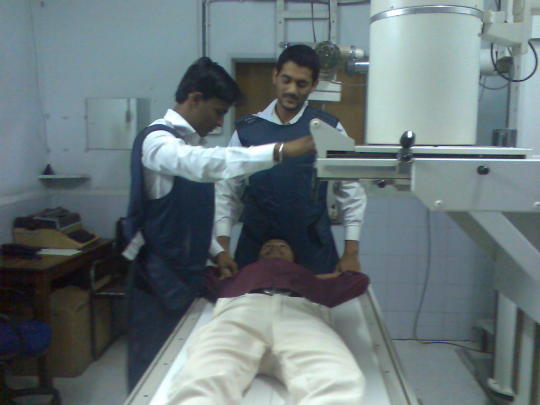
Here are some widely popular Postgraduate courses in health science that graduates can take up:
Master of Public Health (MPH): is a full-time Public Health program focusing mainly on public health practice and research. The students are trained in technical and managerial skills, which aids in strengthening the system. It further aids the development of new policies and policymakers as well. There is a broad scope of research in the field as well. The course, along with in-depth theory knowledge, also focuses on enhancing problem-solving skills and case-based learning.
M.Sc. Nutrition and Dietetics: Master in Nutrition and Dietetics full-time programme with a wide spectrum of specialisations like clinical nutrition, Food Safety and Quality Management, Nutrigenomics From and much more, from which one can choose. The course is a blend of theoretical and practical, which helps the students to clearly understand the nitty-gritty and application of the subject in the actual fieldwork.
During the study of this course, the individuals are trained to analyse and solve issues related to food safety and to manage quality with respect to the food industries.
The MSc Clinical Embryology: Clinical Embryology course gives you detailed knowledge about the technology related to embryology, such as Assisted Reproductive Technology (ART). It is a highly complex and detailed procedure and can only be carried out by professionals. The programme’s goal is to train individuals and make them fit for the health sector.
Students of clinical embryology courses are trained through a diverse set of pedagogical practices. Also, they learn theory and are made well versed with cutting-edge techniques.
M.Sc in Medical Lab Technology: The students pursuing this course from the top-rated M.Sc MLT colleges in Pune, like Symbiosis Institute Of Health Science, will be trained in all the necessary qualities. M.Sc MLT Colleges provides a two-year postgraduate course. The course design is a perfect blend of theoretical orientation and practical application.
Subjects like Microbiology, Toxicology, Cytology, and Biochemistry will be part of the course curriculum. It brings out the best in terms of leadership qualities and high mind receptiveness. M.Sc MLT Colleges provides a two-year postgraduate course. The course design is a perfect blend of theoretical orientation and practical application.
Conclusion:
Among the several M.Sc MLT colleges, providing degrees in the discipline, choose nothing but the best; choose SIHS. Visit the website to know more about MSc MLT Admission 2022.
0 notes